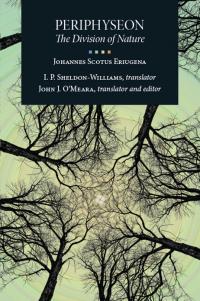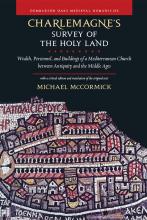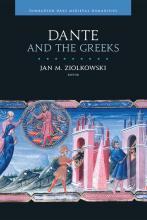Periphyseon
Periphyseon
By: I. P. Sheldon-Williams, John J. O'Meara
Called the “final achievement” of ancient philosophy, Eriugena’s Periphyseon draws on the author’s remarkable knowledge of Greek and Latin Christian theology to present a Neoplatonic cosmology and the fourfold division of nature.
Title information
Johannes Scotus Erigena (ca. 810–ca. 877), commonly known as Eriugena, was an Irish monk, translator, and philosopher. By 851, he was at the West Frankish court of Charles the Bald, where he would remain for the rest of his life at the palace school. His Periphyseon has been called the “final achievement” of ancient philosophy and draws on Eriugena’s knowledge of both the Greek and Latin Christian theological traditions, remarkable in the Carolingian world. The work presents a Neoplatonic cosmology in the form of a catechetical dialogue between master and pupil covering the fourfold division of nature, in which all of reality is involved in a procession from and return to the One.
Although Eriugena had followers in his time and later among the mystics—the School of St. Victor, Eckhart, Tauler, Ruysbroeck, and the German mystics, and Nicholas of Cusa and his professed disciple Giordano Bruno—many in the West did not welcome his ideas, and his work was condemned by Honorius III in 1225.
I. P. Sheldon-Williams
I. P. Sheldon-Williams was a scholar of the Christian Neoplatonic tradition and, until his death, editor of the critical edition of the Periphyseon in the Scriptores Latini Hiberniae series.
John J. O'Meara
John J. O’Meara was Professor of Latin at University College Dublin from 1948 to 1984. He did much to further the study of the early medieval Irish philosopher Johannes Scotus Erigena, founding the Society for the Promotion of Eriugenian Studies in 1970.



